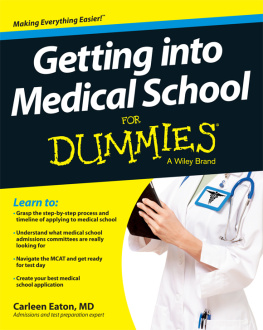Successful Personal
Statements to Get You
into a Top University
Other titles from How To Books
A GRADUATE GUIDE TO JOB HUNTING IN SEVEN EASY STEPS
Jackie Sherman
HOW TO WRITE AN IMPRESSIVE CV AND COVER LETTER
Tracey Whitmore
PSYCHOMETRIC TESTS FOR GRADUATES
Andrea Shavick
HOW TO SUCCEED AT INTERVIEWS
Dr Rob Yeung
HOW TO PASS PSYCHOMETRIC TESTS
Andrea Shavick
CREATING YOUR FIRST EVER CV IN SEVEN EASY STEPS
Julia Dolowicz
Successful Personal
Statements to Get You
into a Top University
Edited by Warren Zhang and
Hemant Mohapatra
how to books
Constable & Robinson Ltd
5556 Russell Square
London WC1B 4HP
www.constablerobinson.com
First published in the UK by How To Books,
an imprint of Constable & Robinson Ltd, 2014
Copyright Warren Zhang and Hemant Mohapatra 2014
The right of Warren Zhang and Hemant Mohapatra to be identified as the authors of this work has been asserted by them in accordance with the Copyright, Designs & Patents Act 1988
All rights reserved. This book is sold subject to the condition that it shall not, by way of trade or otherwise, be lent, re-sold, hired out or otherwise circulated in any form of binding or cover other than that in which it is published and without a similar condition including this condition being imposed on the subsequent purchaser.
A copy of the British Library Cataloguing in Publication
Data is available from the British Library
ISBN 978-1-84528-514-2 (trade paperback)
ISBN 978-1-47211-016-9 (ebook)
Printed and bound in the UK
3 5 7 9 10 8 6 4 2
Cover design by Bob Eames
Contents
Acknowledgements
We are extremely grateful to the students at Cambridge University for their time, effort and trust in us to submit their Personal Statements to be included in this book. The submissions we received far exceeded our expectations in terms of quality, quantity and diversity. We would also like to thank the final fifty contributors to the book; without them, this project would not have been possible.
We are indebted to our co-editors Anna Claeys, Gwen Jing and Arjun Sajip, Cambridge University students involved with various university newspapers in editorial or journalistic capacities for their outstanding analysis, effort and quality of work, which has added a new dimension to our publication.
Our thanks further extend to Nikki Read and Giles Lewis at How To Books and the team at Constable & Robinson for their help, guidance and trust in us to write this book.
Huge thanks to Daniel Gulati, Harvard Business School alumnus and author of Passion and Purpose, Harvard Business Review Press (2011), and Dr Mark De Rond, professor at University of Cambridge Judge Business School and author of the bestseller There Is an I in Team, Harvard Business Review Press (2012), for their guidance and advice in formulating our book proposal. It was our initial discussions with Daniel and Dr De Rond that helped structure our vision for the book and forced us to think critically about the larger mission we are trying to accomplish giving everyone an equal footing to compete for a place at some of the top universities worldwide.
Preface
In 2011, over 580,000 students competed fiercely for limited university places at leading UK universities where acceptance rates are less than 20 per cent. Places at top educational institutions are highly competitive and selective, and all students are looking for an edge. This book will help prospective candidates answer a very specific question: what makes for a successful Personal Statement?
The content of this book will have a broad appeal to prospective university students applying to universities in the UK and abroad. It is meant for anyone wishing to apply for an undergraduate course at a university that requires writing a sample and/or a statement of purpose. Tutors, advisers and parents who are looking to provide candidates with university subject advice, plan future careers and consult on meeting admissions criteria will also find this book a useful tool.
We would like to point out that the views and opinions expressed in the book do not reflect those of the University of Cambridge, nor are they officially endorsed by its admissions committee(s). Reading this book does not guarantee admission into any university but, used judiciously, it should help students put together a more thoughtful, honest and holistic package when compiling an application to a university.
Our goal is to highlight personal statements of the highest standard from students at Cambridge University to set a benchmark of success, and to offer practical ways of improving your own Personal Statement to gain admission to the university of your choice. Throughout the book, well also discover that there is no right or wrong approach to writing a strong Personal Statement. What truly matters is that your Personal Statement shows depth of self-awareness, passion and a clear path to your future goals, and then goes on to explain how studying at a university will help you achieve those goals.
Part I
Applying to a Top University
1
Why Study at a Top University?
Most common reasons
Going to university is tough. It takes time, energy and, lets not forget, money! So why do so many people spend a majority of their teenage years working hard so they can get into a top university, only to work harder again?
The answer is simple: university is the gateway to opportunity. It is that one, undeniable, stamp of approval that endorses your intelligence, persistence and fortitude. Sure, there are many who have gone on to do great things without a university education, but the number of people who have done so is extremely low. In the bestselling book by Nassim Nicholas Taleb, The Black Swan, you may come to realize just how lucky many of our societys high achievers are. Universities tend to normalize our luck. Opportunities are useful only when you are ready for them. Studying at a university increases your chances more than almost anything else to prepare you for lifes major opportunities.
In going through some of the Personal Statements from the university graduates we interviewed, you will notice that people tend to go to universities for a variety of reasons some personal, some professional:
I went to Imperial because it is in the heart of London, the gateway to Europe and a place I always wanted to live. Imperial is consistently ranked in the Top 20 universities in the world and has a great reputation for science and engineering. As an aspiring engineer, it is the ideal place for me to gain the knowledge for my future career.
Ralph Qiu, Imperial College (Bachelor of Material Engineering)
As an Asian-American student studying in the US, I wasnt aware that not going to university was an option.
Elaine Chow, New York University (Bachelor of Journalism)
College was never really a question, always wanted to go. I actually enjoyed studying and learning. As for where I went, I wanted to go somewhere that I could gain some independence from my parents (thus distance from Florida) and I wanted to go to a well-ranked school. Since I had a scholarship from the Army, I also needed to find a school that had an Army ROTC program.
Ruthie Levy, Cornell University (Bachelor of Science, US Army)
[I went to college because] I recognized the financial and intellectual value of a college education, and also to challenge myself personally.
John Wingfield-Hill, Kings College London
Next page
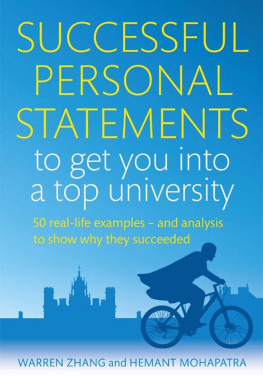

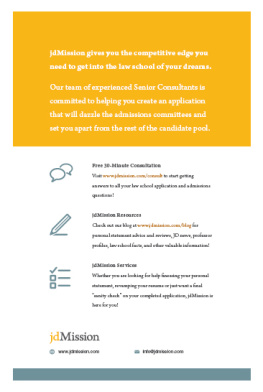
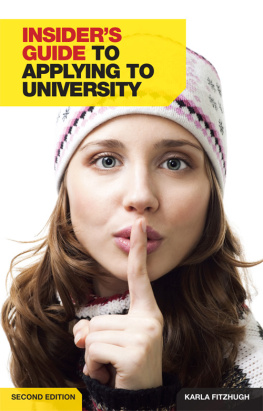
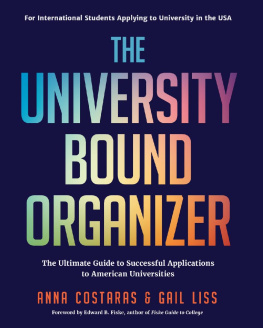
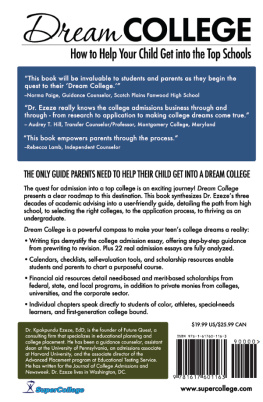
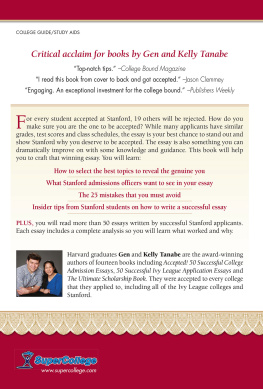
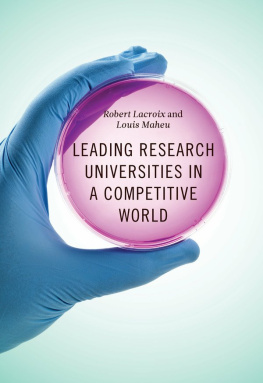
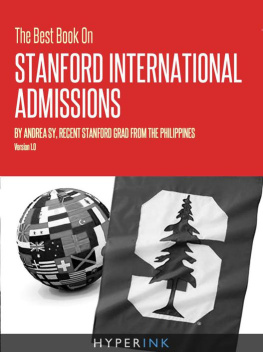
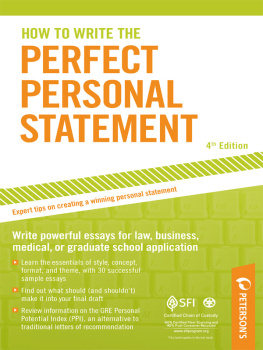
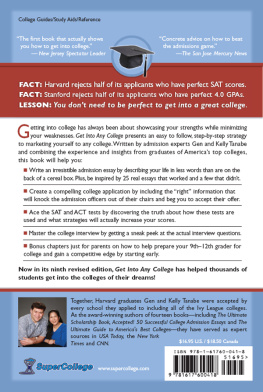
![Reding - Grads Guide to Graduate Admissions Essays] : Examples from Real Students Who Got into Top Schools](/uploads/posts/book/101661/thumbs/reding-grad-s-guide-to-graduate-admissions.jpg)
